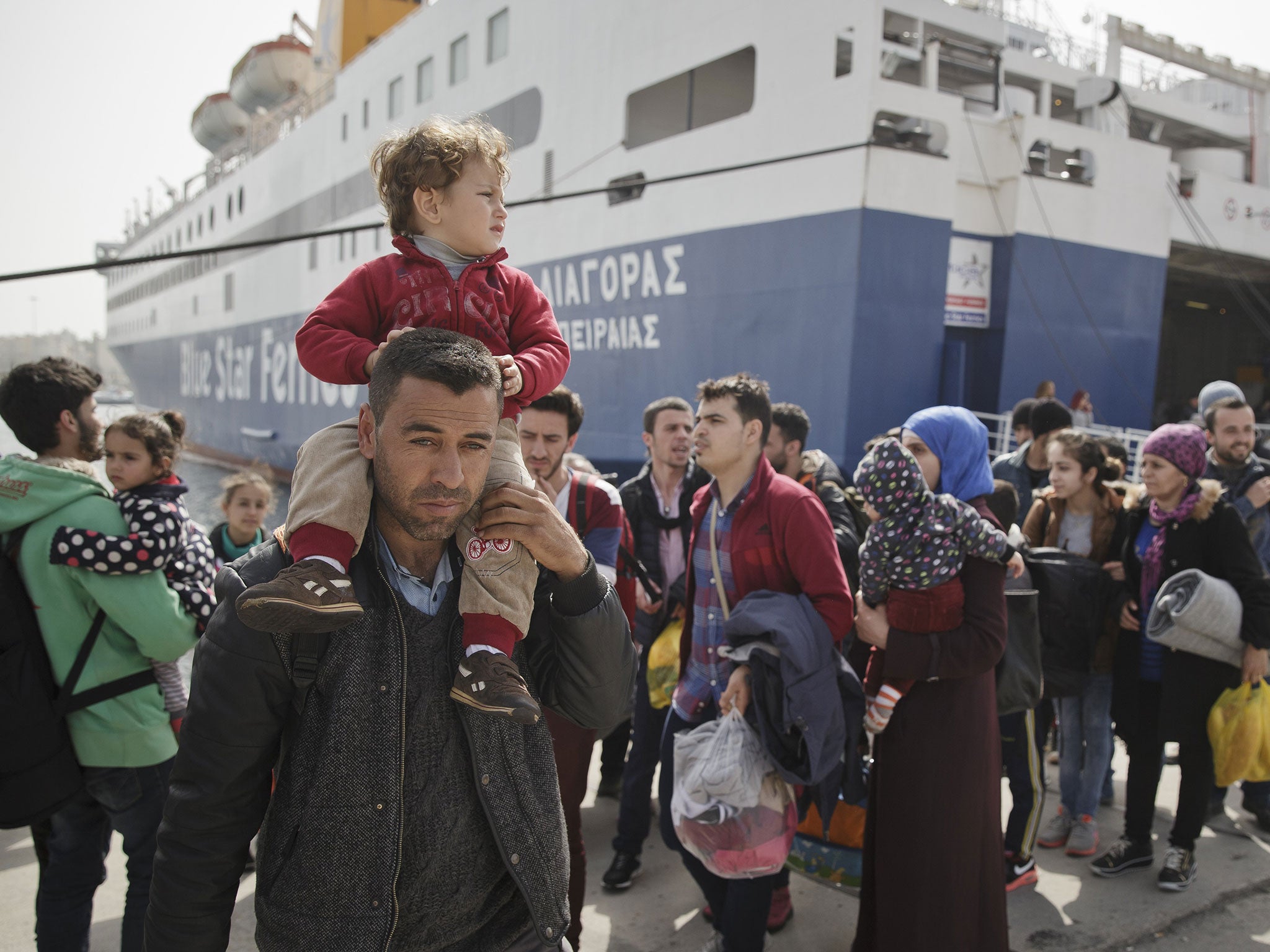Refugee crisis: Greece 'bans refugees from buying tickets' on public ferries from Aegean islands to mainland
Travel agencies in Lesbos and Leros told aid workers they were instructed not to sell migrants tickets

Your support helps us to tell the story
From reproductive rights to climate change to Big Tech, The Independent is on the ground when the story is developing. Whether it's investigating the financials of Elon Musk's pro-Trump PAC or producing our latest documentary, 'The A Word', which shines a light on the American women fighting for reproductive rights, we know how important it is to parse out the facts from the messaging.
At such a critical moment in US history, we need reporters on the ground. Your donation allows us to keep sending journalists to speak to both sides of the story.
The Independent is trusted by Americans across the entire political spectrum. And unlike many other quality news outlets, we choose not to lock Americans out of our reporting and analysis with paywalls. We believe quality journalism should be available to everyone, paid for by those who can afford it.
Your support makes all the difference.Greek authorities are reportedly attempting to stop refugees arriving on Aegean islands from boarding ferries to the mainland as a humanitarian crisis continues to build.
Travel agents on Lesbos and Leros told aid workers they were instructed not to allow asylum seekers to buy tickets for public ferries on Thursday.
Thousands of asylum seekers are still crossing from Turkey every day but border restrictions in Macedonia, Serbia, Croatia, Slovenia and other nations on the Balkans route to western Europe is creating a huge backlog in Greece.
Up to 30,000 refugees are believed to be trapped in the country, with many sleeping rough in parks and city squares as shelters overflow.
Gemma Gillie, from Doctors Without Borders (MSF) told The Independent that Greek authorities attempted to be intensifying efforts to slow arrivals to the mainland.
On Friday, ferry companies were asked to reduce services and ships chartered by the Government were docked in Lesbos, Chios and Samos with no indication of when they would depart.
They are being used as emergency accommodation until refugees can be transferred to mainland Greece, with numbers mounting every day.
“Travel agencies are not being allowed to issue any tickets to refugees,” Ms Gillie said. “There are 16,000 people in Idomeni (near the Macedonian border) are they are trying to stop more people coming.”
MSF aid workers have been told that even when asylum seekers are allowed on public ferries again, possibly on Sunday, a quota of 200 per boat will be imposed and Greeks and tourists given priority.
Even when refugees reach the border, the neighbouring country’s policy of only allowing Syrians and Iraqis through is stranding around 35 per cent of arrivals, causing protests and clashes with police.
The government said it was imposing last week’s ferry restrictions in order to build more temporary shelters but there were fears the move will deepen the humanitarian crisis on Aegean islands still seeing between one and five thousand people arrive every day in flimsy smugglers' boats from Turkey.
Boris Cheshirkov, a spokesperson for the UN Refugee Agency (UNHCR) in Lesbos, said around 4,000 refugees were currently on the island and that the situation was currently under control.
“We’ve had around 1,000 people arrive in the last 24 hours,” he added. “In the last two months we’ve had about 70,000 and we didn’t reach that until the first six months last year.”

He said Greek authorities were “stepping up” to the challenge but said the European Union must do more to share responsibility to avoid a looming humanitarian crisis.
Greece's Prime Minister has called for sanctions to be imposed on EU states that refuse to take in their share of the hundreds of thousands of refugees arriving in his country.
Alexis Tsipras also demanded that the practically dormant “hot spot” procedure for relocating refugees stranded in Greece to other EU members should be drastically speeded up.
Speaking after a meeting with European Council President Donald Tusk in Athens on Thursday, he promised to provide “dignified” living conditions for those trapped in Greece after other countries further north along the migration route to Western Europe imposed sweeping entry restrictions.
But he insisted that the solution can only be temporary and Greece will accept only its fair share of permanently resettled refugees.
More than 135,000 refugees and migrants have arrived in Europe by sea so far this year, with at least 400 drowning in the attempt.
Additional reporting by AP
Join our commenting forum
Join thought-provoking conversations, follow other Independent readers and see their replies
Comments